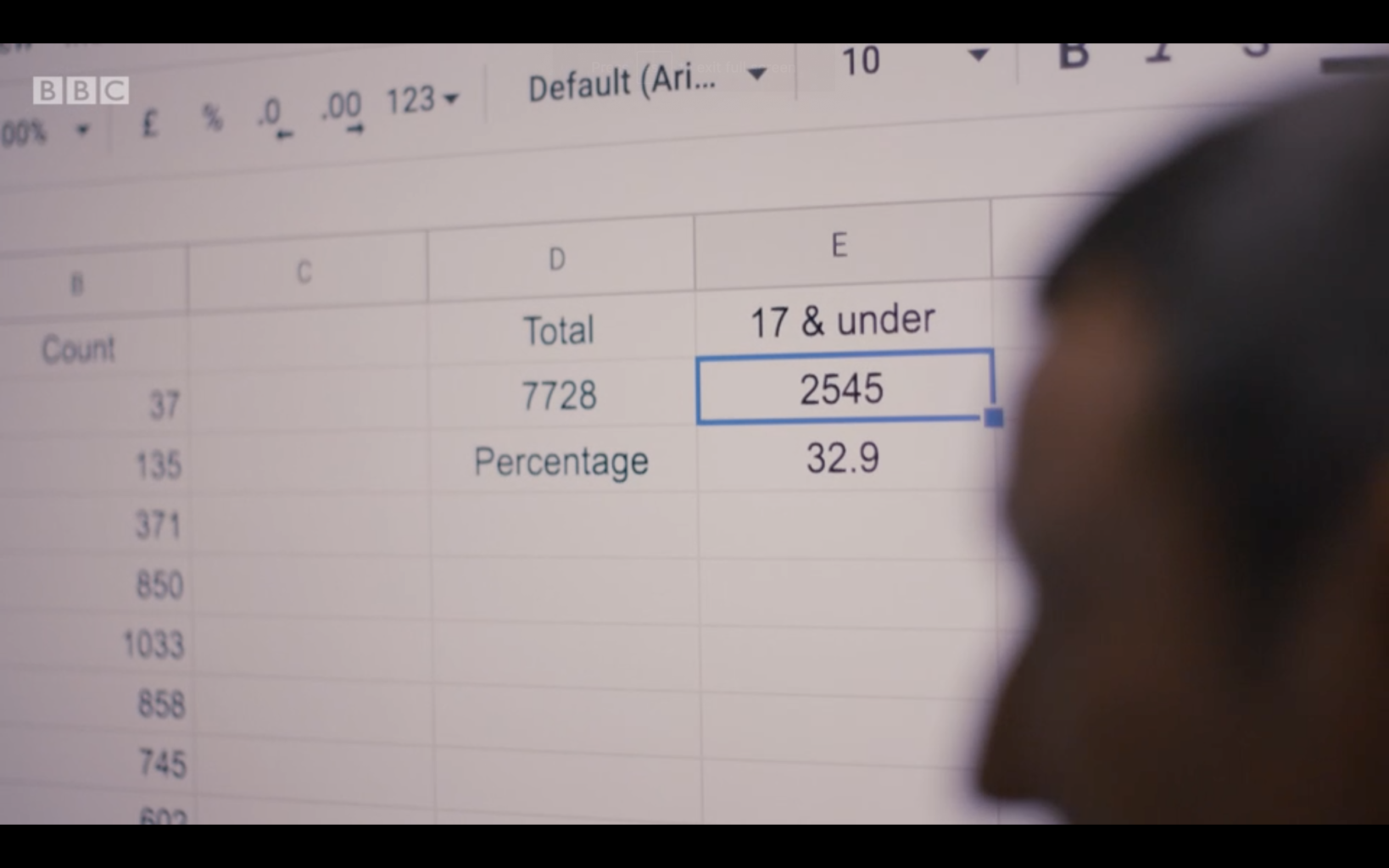
A few months ago, Yoti was approached by the BBC to support their investigation into a growing trend on social media called #Nudes4Sale, a phenomenon that sees thousands of adults and teenagers making money from selling their own nude photos and videos. We helped them check the ages of the people sharing content on social media platforms with our anonymous age estimation solution, Yoti Age Scan. And the results were shocking.
The full documentary is on the BBC iPlayer. You can find us at 13-17 minutes during which the BBC journalist runs profile pictures through our age estimation portal, and then again at 40-43 minutes as our CEO Robin Tombs and CTO Paco Garcia talk through the results from the age estimation.
The BBC tackles a sinister trend
This documentary investigates why and how so many thousands of adults and teenagers sell nude photos and videos online. They do this through specialist platforms like OnlyFans and promote their activities through their own personal channels on mainstream social media platforms such as Twitter, SnapChat and more.
Why do they do it?
“The appeal is simple”, explains Flynn, “It’s fast, easy and you can earn big money.”
People can quit their job and make more money from their bedroom without physical contact. The allure for some is obvious, but making anything too fast and easy brings downsides. As Flynn clearly states, “the other side of selling nudes is far more sinister”.
18+ content from the wrong hands
Adult content rules are set at 18 for good reason but there’s very little that enforces these rules in the online space. “I saw a disturbing number of seemingly underage profiles advertising nudes for sale, with many promoting their content on Twitter… I was concerned a number of the profiles I came across were younger” Ellie continued.
Her observations were confirmed by Hannah, aged 17 from Scotland. She created an OnlyFans account with a fake ID and was selling explicit personal content at the age of 16. Despite being caught and banned, she managed to rejoin and share again.
BBC commissioned research with Yoti technology
To test Flynn’s theory, the BBC commissioned a piece of research using Yoti Age Scan to scrape Twitter accounts for explicit images and estimate the age of those who appeared in the photos.
“The results were staggering: In just one day they found 2,545 separate accounts where the person in the profile photo appeared to be under the age of 18. These underage results accounted for a third of the total images, with 37 estimated to be just 13 years old.” said Ellie.
Yoti Age Scan ‘always forgets a face’ ®
Yoti Age Scan uses machine learning AI to deliver accurate age estimations for people of all ages, skin tones and genders. The technology works by comparing an image to its knowledge of thousands of other verified ages. It does this free from human bias and ‘always forgets a face’®, with no image retained after ages are estimated.
More detail can be found in our regularly-updated white paper.
Every face is different. Some people naturally look young for their age and others look older. It’s possible for an 18-19 year old to be estimated younger than their actual age and equally, some 13-15 and 16-17 year olds could be flagged as older. But, on large sample sizes, the technology delivers high accuracy and enough assurance that accounts could and should be checked if the person appears underage.
Yoti has signed the Safe Face Pledge, which marks our commitment towards mitigating the abuse of facial recognition technology. We have embedded the pledge into our business practises, addressing harmful bias, transparency, showing value for human rights. We are transparent about our use of biometrics and have undertaken an Algorithm Impact Assessment with Allison Gardner, IEEE expert from Keele University.
Failing to protect the young and vulnerable
It’s clear from the findings that we are failing to protect young people online, despite networks defiantly claiming they have “zero tolerance” and “strictly prohibit” child pornography.
As leading child safety expert John Carr told us, “companies that are providing the games and Apps that children flock to really must step up and start making much more extensive use of age verification.” However, it’s been proven time and time again that self-regulation isn’t enough for the vast majority of social networks and content businesses. More needs to be done internationally from a governmental level to protect young and vulnerable people online.
The UK’s Digital Economy Act was a first beacon of hope in this fight, but it sadly faltered when the proposal to introduce an age verification system was abandoned after being delayed three times by the government. While other countries are stepping up efforts for better regulation, the online world needs unified global responses to tackle problems. Underage porn and underage access to social, live streaming, dating and adult platforms are pressing issues that require attention as this documentary shows.
Robin Tombs, Yoti CEO said: “As a company dedicated to protecting children online, we were proud to support the BBC with our anonymous age estimation tool, Yoti Age Scan, in this investigation. It will be shocking to quite a lot of people because they just won’t assume that is the type of thing that’s going on. It’s clear more needs to be done by these companies to protect children and vulnerable people online. We have the tools available today to do that, you have to question why these platforms aren’t choosing to use them.”
